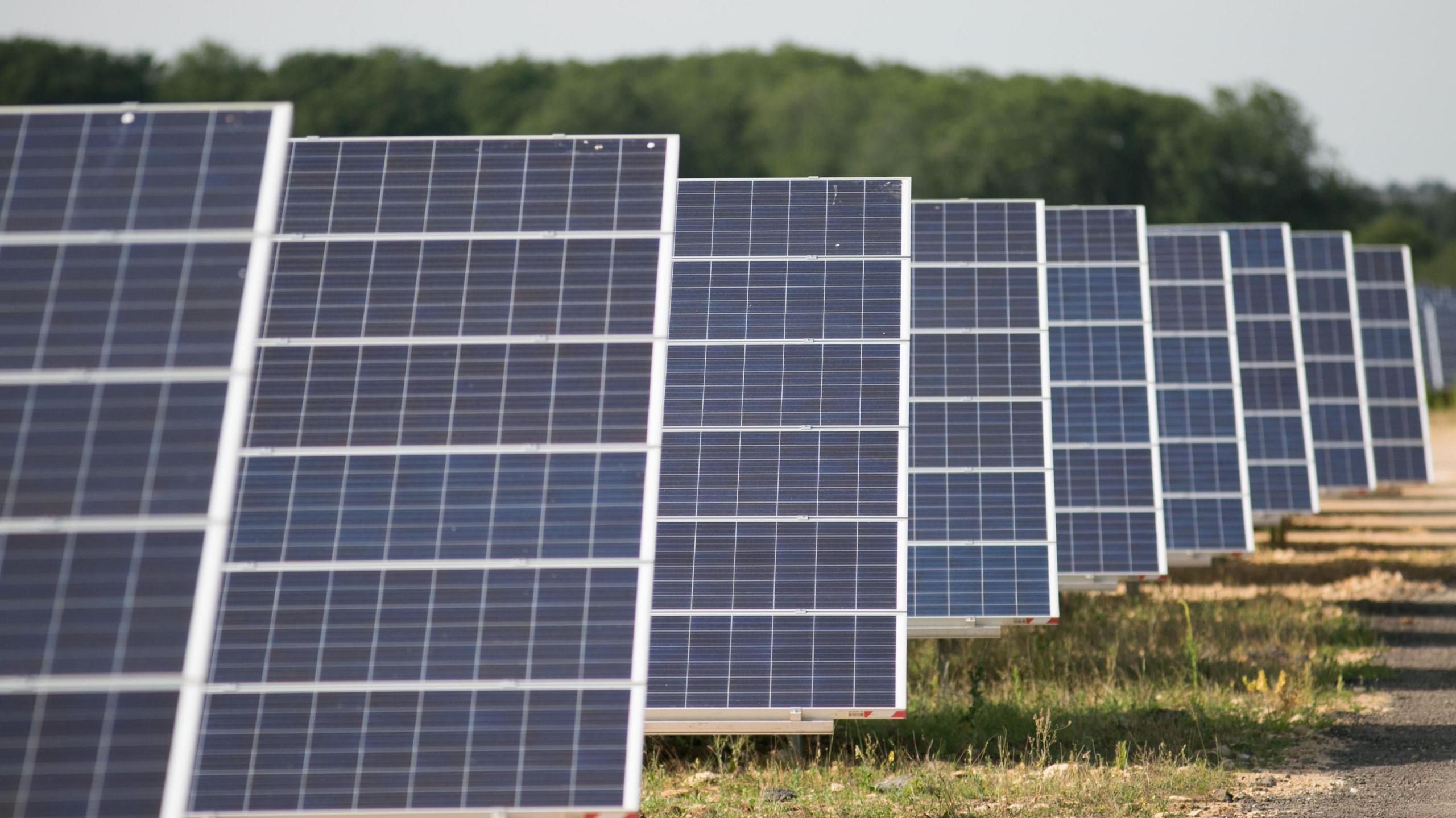Kennel owner says solar farm could 'kill business'
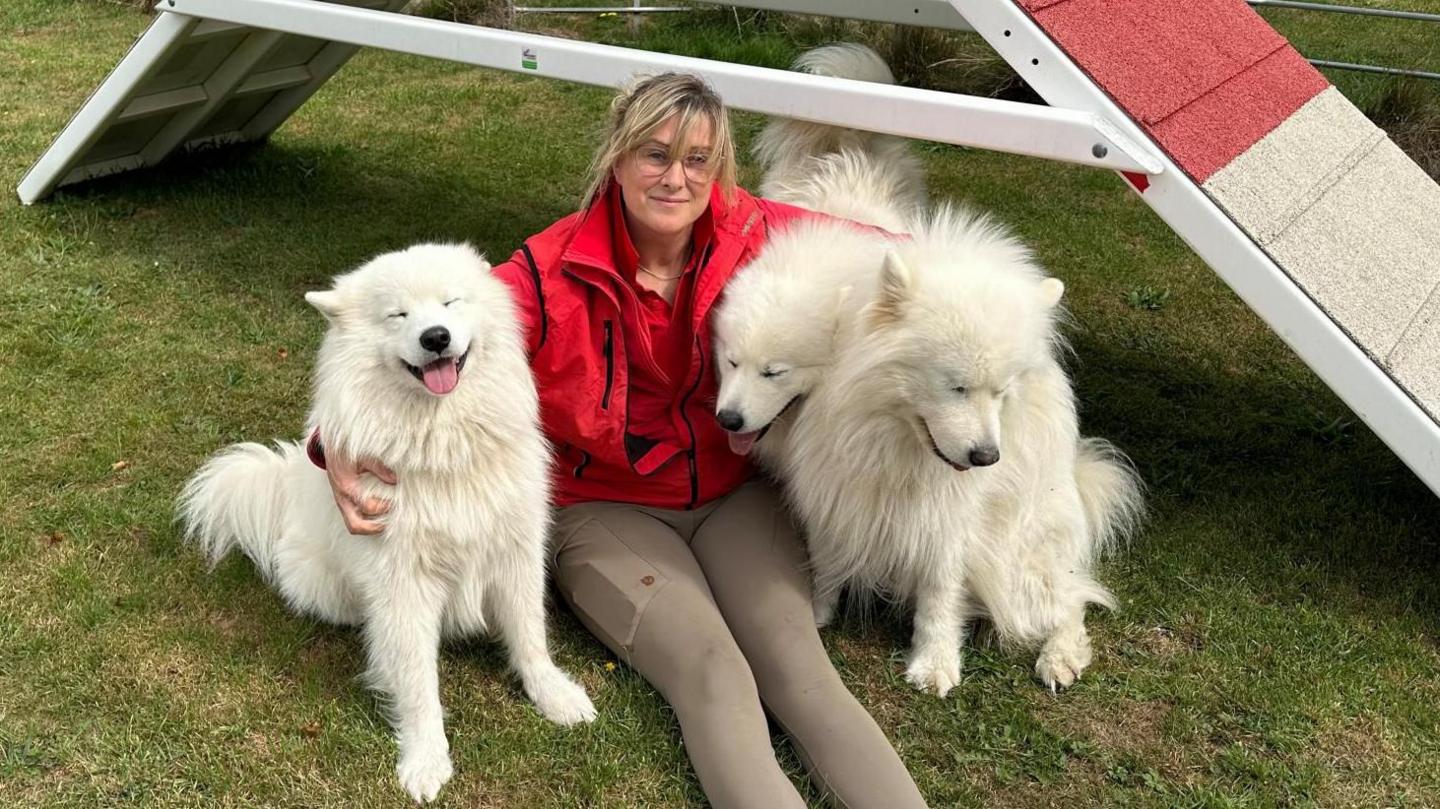
Tammie McNeill runs a kennels for up to 30 dogs
- Published
The owner of a kennels said if plans to build a solar farm next door were approved it would "kill" her business.
Tammie McNeill, who runs Sandy Lane Kennels in Letheringham, Suffolk, said the solar panels would be a just few metres away from her property.
Quintas Cleantech, external (QC) has made a planning application for a 220-acre site across two areas, including battery storage.
QC said the solar farm would power 15,150 homes a year and it would contact Ms McNeill to "hopefully provide comfort" her concerns had "been taken into account in the design of our project".
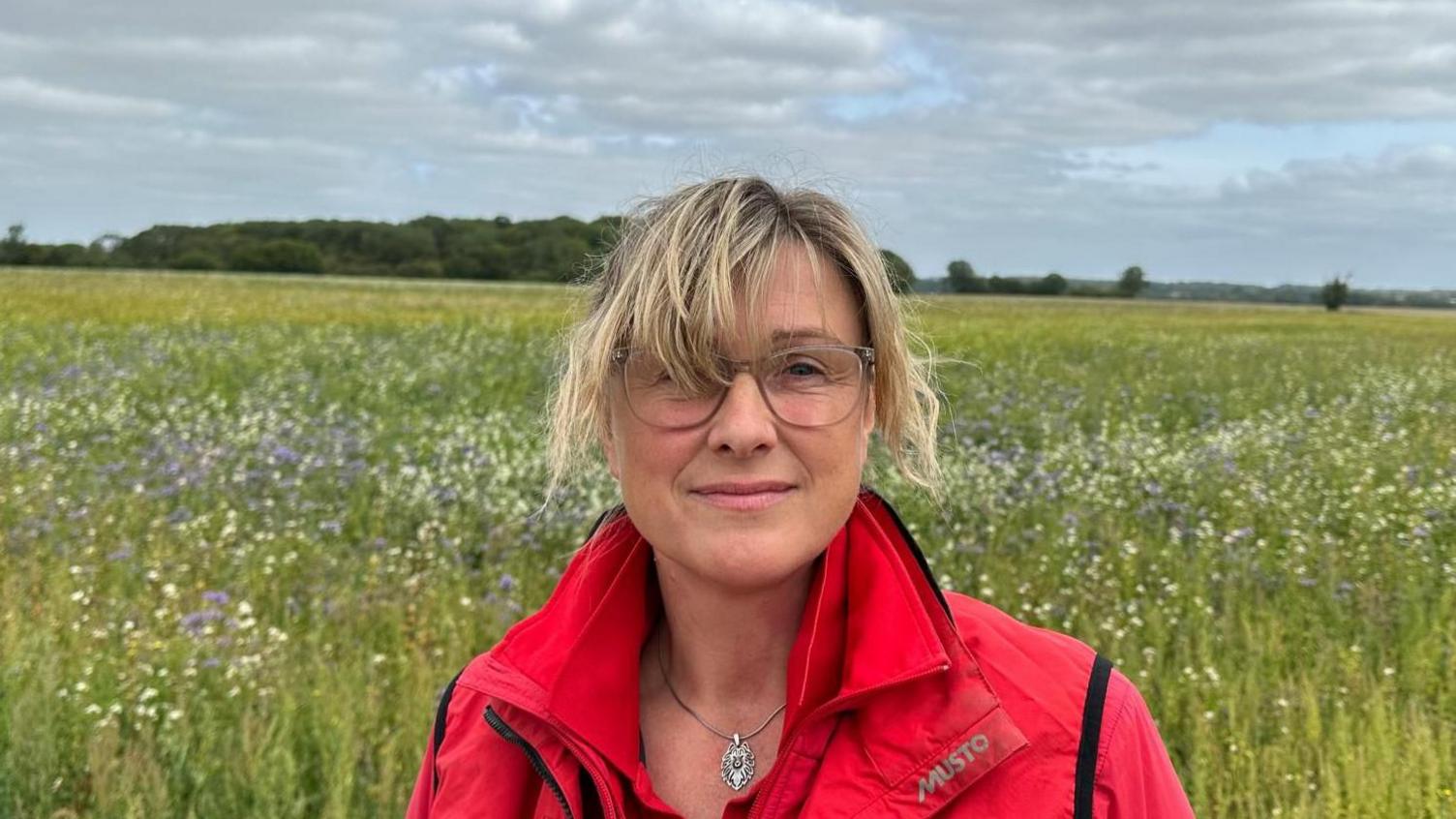
Ms McNeill said she has fire safety concerns over the solar farm
Ms McNeill said the development would "wrap around" three sides of her property and called it a "solar farm prison".
She said part of her kennels' appeal was the view across nearby fields. She feared customers would be put off if it was spoiled.
She said: "I really don't think my kennels can survive this."
Ms McNeill said she also had concerns about fire safety.
She said if there was an incident - either with the panels or battery storage - she would have to lead up to 30 dogs to safety along a single-track road.
She said: "I genuinely think my kennels will become a death trap.
"We can't escape."
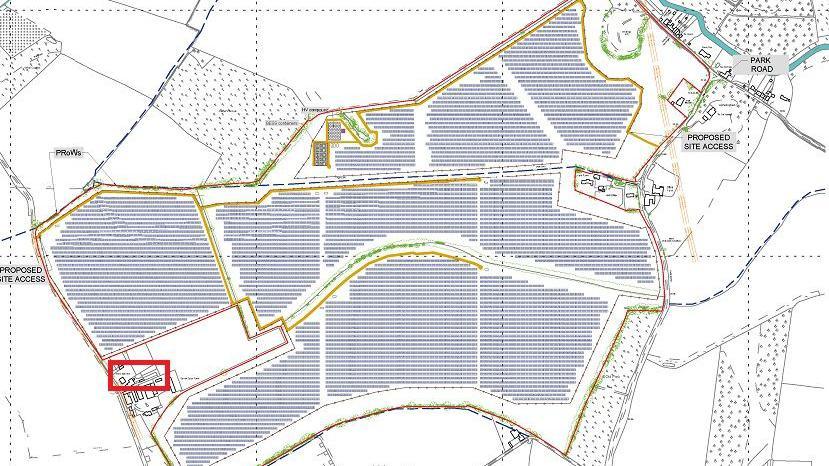
Ms McNeill's property is shown in the red box on a map of the potential layout of the solar farm
Building the solar farm is expected to take 12 months, with work taking place during the day from Mondays to Saturdays.
Eighty workers are expected on site during peak construction times, with around seven deliveries by heavy goods vehicles a day.
There have been 160 objections to the proposals.
Stephen Cooper, from the Stop Deben Solar Farm group, questioned the use of farmland.
He said: "They're [solar farms] definitely in the wrong place for me."
A soil quality classification system grades soil from one to five, with one the highest rating.
The planning application shows the quality at the proposed site is between two to three.
Suffolk Fire and Rescue Service has said battery farms are an "emerging risk".
But Tony Slade, an energy expert, said solar panels did not pose a significant fire risk, and were at no more of a risk than any other electrical device.
He said fires from battery storage were very rare and usually happened because of electronic faults.
QC said: "We ensure our sites are managed well throughout their lifetime, and that includes minimising fire risk."
It added: "We will develop and build the project in such a way as to ensure that sheep grazing is possible, and we will actively encourage this alongside and underneath the panels; retaining the ability of the land to be used for agriculture as well as energy generation."
Because the solar farm will produce 49.9 megawatts (MW) of electricity, the planning application will be decided by East Suffolk Council.
Projects 50MW or higher are considered nationally significant infrastructure projects and planning permission is decided by the government.
That is set to increase to 100MW from 2026., external
The government wants 95% of energy produced in the UK to be low carbon by 2030.
Jack Abbott MP, who represents Ipswich and is the government's mission champion for the East of England, said: "We must reduce our dependence on foreign-owned gas and start delivering more energy that we own in this country.
"Things like solar, wind and nuclear are not only good for the environment, increasing our energy security and producing jobs, they will also help lower energy bills."
Get in touch
Do you have a story suggestion for Suffolk?
Follow Suffolk news on BBC Sounds, Facebook, external, Instagram, external and X, external.
Related topics
More stories like this
- Published31 July
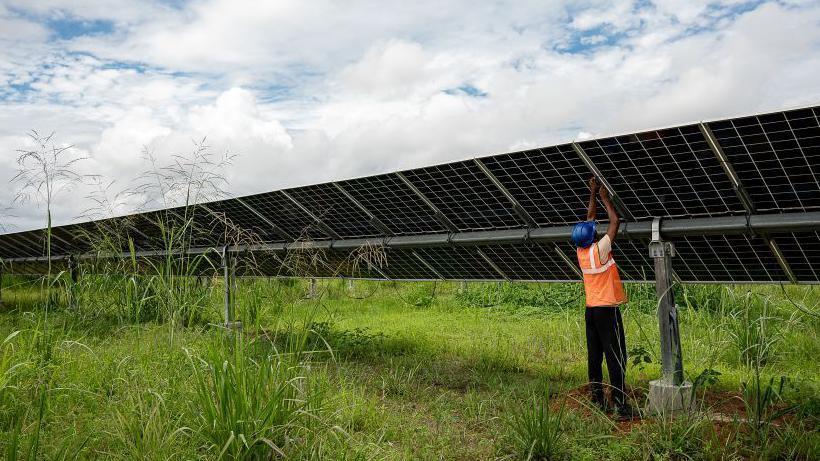
- Published10 April
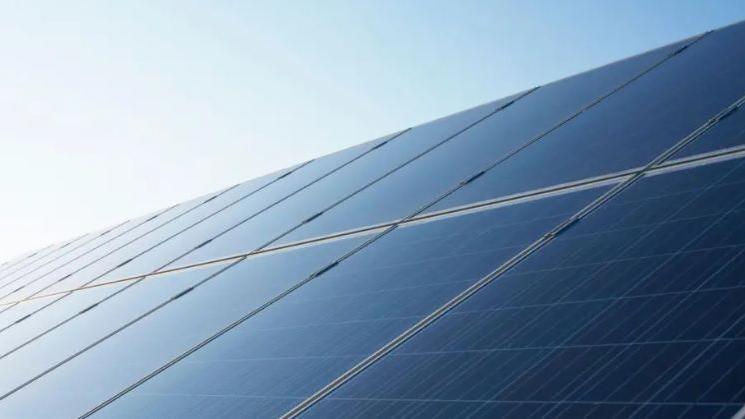
- Published6 February
